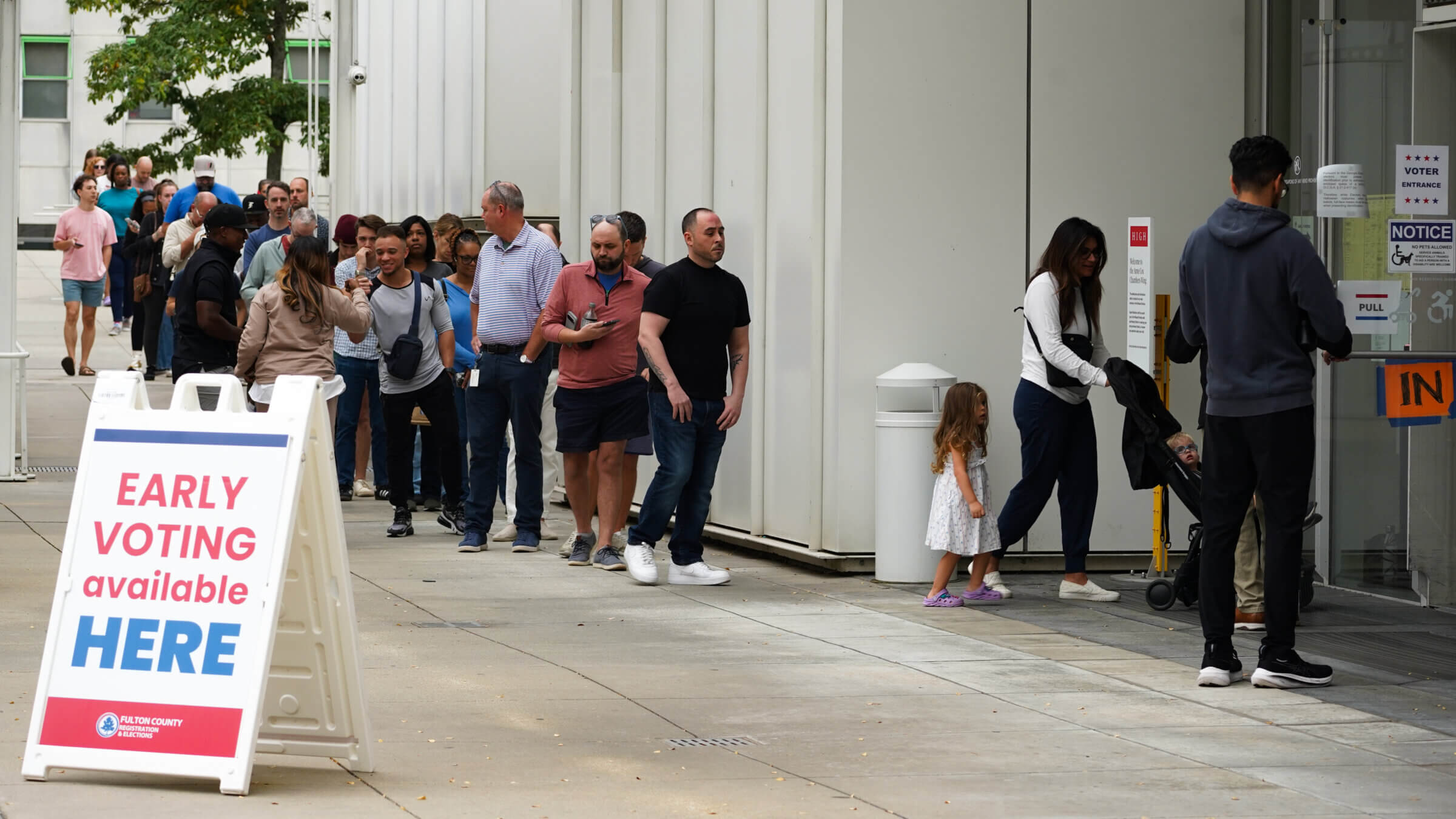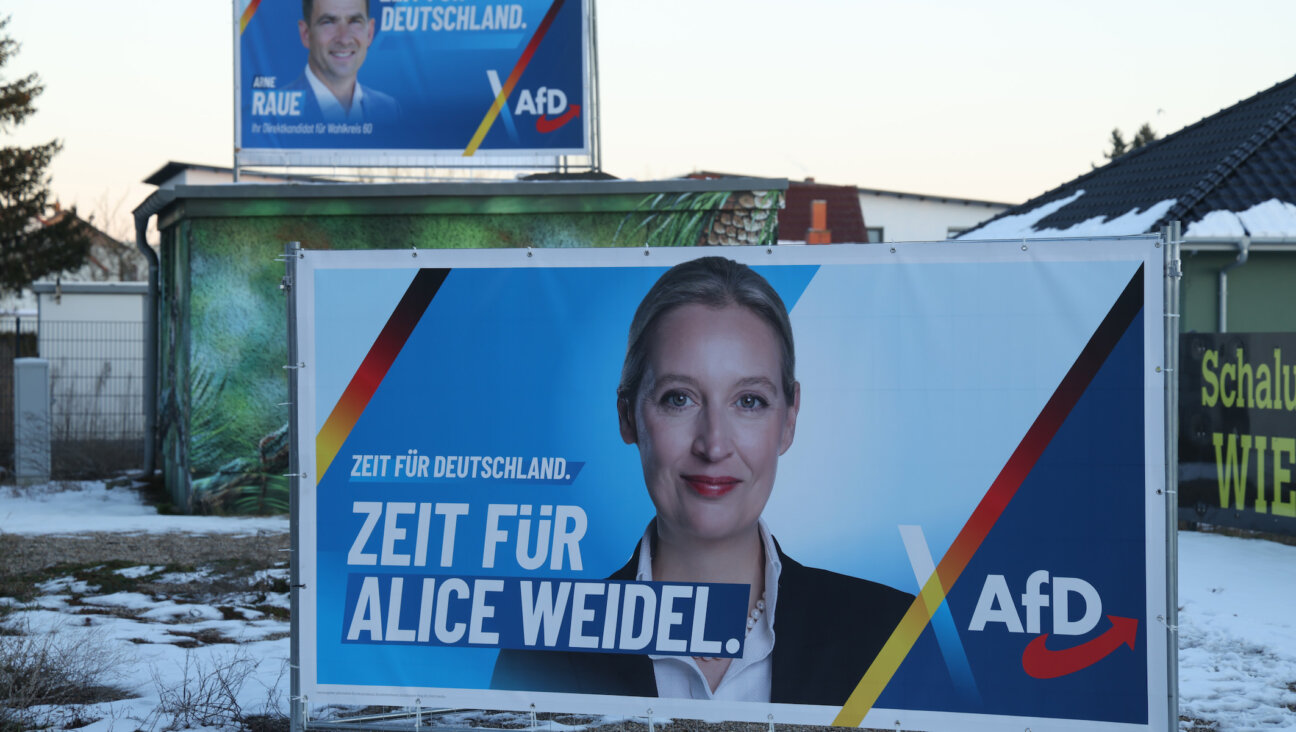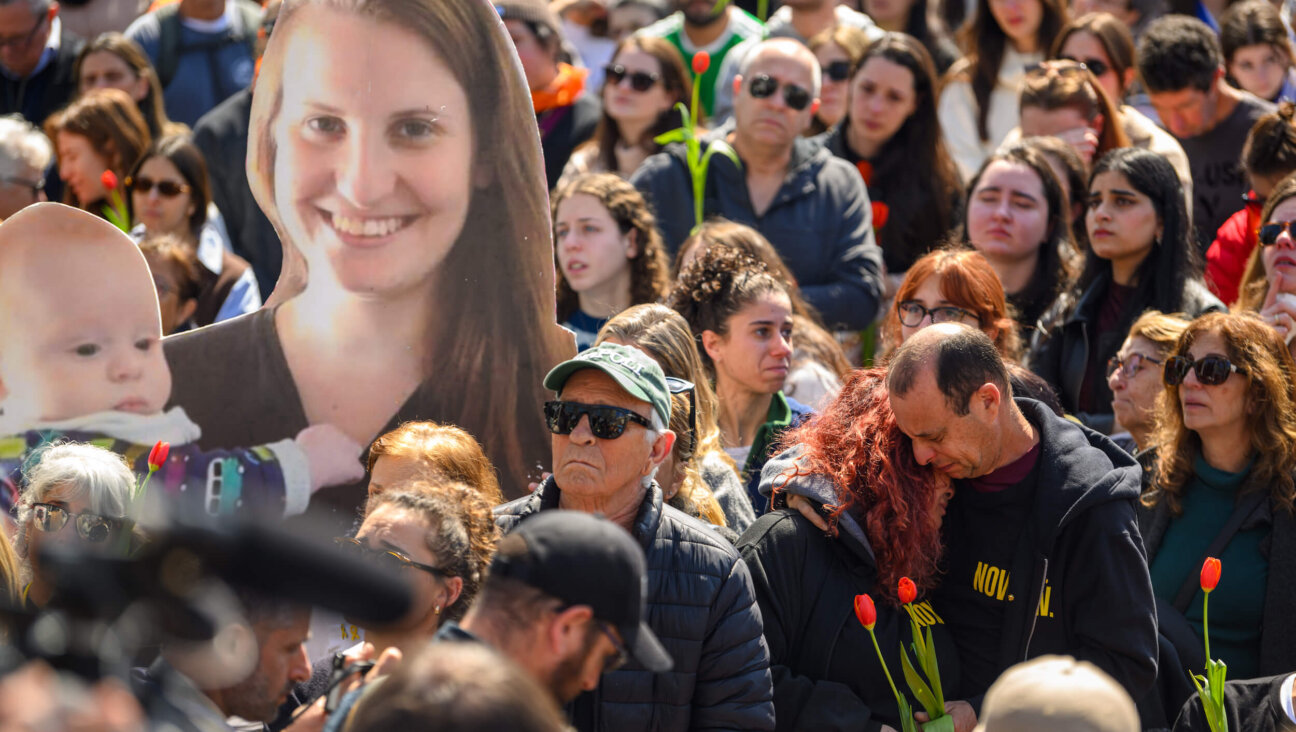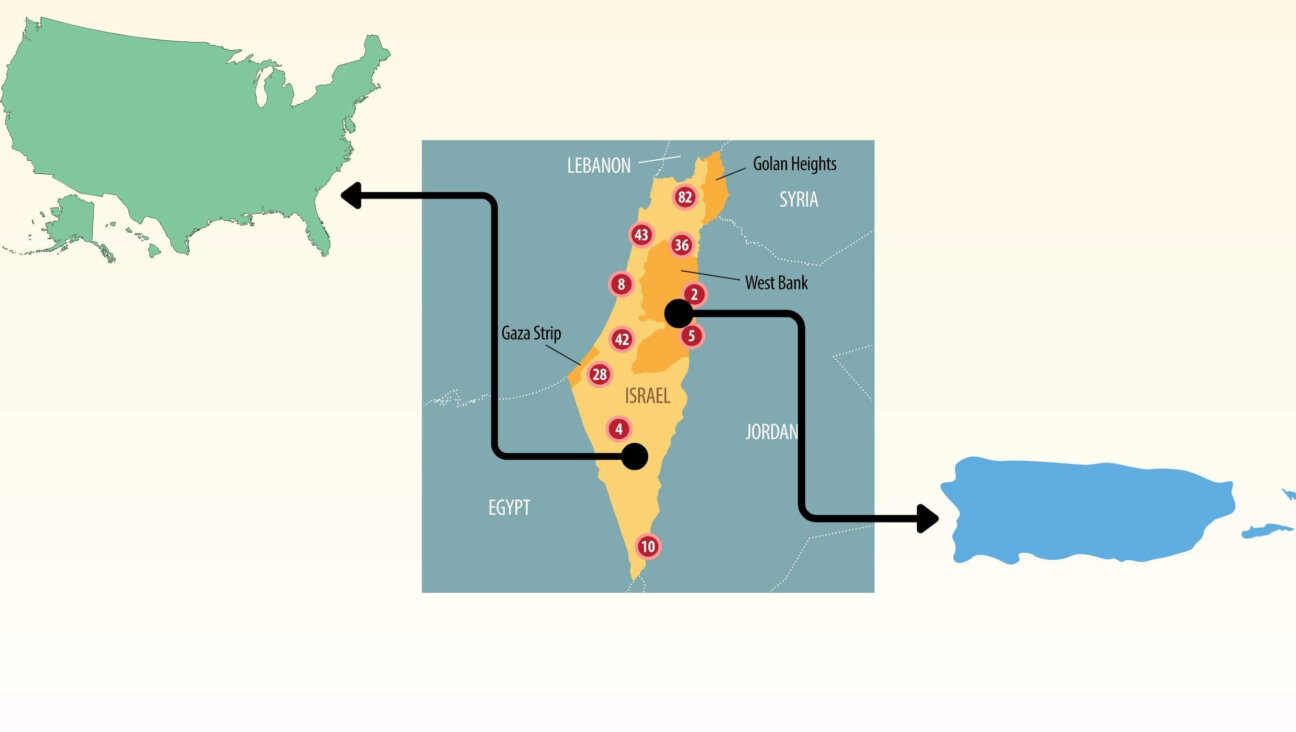Letter to a young poll worker: Why you must stay hopeful when the world threatens to break you
The voters we helped stand for the same hope as my Jewish immigrant ancestors did

Voters head into a polling location to cast their ballots on the last day of early voting for the 2024 election on Nov. 1 in Atlanta. Photo by Getty Images
Dear Gaia:
We worked briefly together on Election Day at the Los Angeles County Vote Center, handling over 900 walk-in voters — one voter every four minutes for 13 hours straight!
You and the two other high school student workers looked so crestfallen as you huddled over the news feeds on your phones. If we had more time to speak that day, here’s what I would have told you:
Ernest Hemingway famously wrote that “The world breaks everyone and afterward many are strong at the broken places.” The world breaking you early can be a very good thing, because you have a lifetime ahead of you to grow strong and resilient, disabused of naive and foolish illusions.
When my brother and I were young teenagers, we volunteered in the summer and fall of ’72 on the George McGovern campaign, as surely doomed a presidential candidacy as there ever was in my lifetime. Following the news but somehow ignorant of its realities, we poured our hearts and souls into the campaign scut work, cold-calling potential donors, leafleting factory gates, setting up tables for events, writing thank-you notes, and canvassing door-to-door, up to and including ferrying seniors and disabled folks to the polls in my old ’50s Plymouth as a 16-year-old first-year driver.
When Election Night arrived, it was a 49-state blowout, 520-17 in the Electoral College. McGovern didn’t even win his own home state of South Dakota. We sat around the television in our headquarters and quietly wept. We were broken, but more than 50 years later, we’re stronger in the broken places. Trust me, you’ll get through this, too.
I want to ask you to try to set aside your bitterness and confusion over the outcome, and think instead about some of those voters we assisted. Remember Anjelica, a young Latina I registered, who quietly admitted that her place of residence was a homeless shelter. Steve, a one-legged man who slowly and painfully hobbled in on crutches.
George, a Korean American guy two years younger than me who looked 15 years older. He had no fixed address. “Yeah, you know, I had a place, but with the pandemic … family dynamics …” he trailed off. I asked where I could register him now; he gave me the address of one of the city’s master-leased motels for homeless clients. He asked if I knew a way he could get on a list for The Montecito, a formerly grand Mayan-themed art deco registered landmark apartment building around the corner from the voting center that had once housed a young Ronald Reagan and James Cagney, but which had been converted to senior housing. He gave me a friendly fist-bump and said, “I need some luck, bro.”
There was another young man, barely older than my older son, who softly admitted that he was homeless and living on the street near the last apartment from which he’d been evicted. And I helped Blanca and Julio, a freshly registered older Latino couple smiling as they clutched the ballots I’d issued them and headed off to the voting booths.
Gaia, let’s also remember the dedication of our fellow poll-workers: Norma, a Filipina 20-year U.S. veteran who wears her Desert Storm Veteran cap every day; Tura, a multilingual French-Italian-Persian-Azerbaijani licensed architect who proudly showed me a picture of herself with Frank Gehry when she worked on his team; Ross, another licensed architect and gay man who’d escaped repressive small-town Indiana to be himself and work in Los Angeles; Hana, our Filipina lead manager, a psych nurse at a County hospital whose parents were also both retired nurses.
Together, these voters and we poll workers were all part of the process that has helped ensure the continuation of American democracy, flawed and imperfect as it may be, since George Washington was elected as our first president in 1788. When my four grandparents emigrated to America more than a century ago as Jews escaping persecution and death in Ukraine and Lithuania, they too faced economic challenges and discrimination, but they embraced the unimaginable freedom this country offered them to lift their voices and cast their ballots for a say in their future. That’s a privilege they bequeathed to me that as a Jew and descendant of immigrants I can never take for granted. I’ve found nothing quite so rewarding as helping others to secure their voting rights, and exercise them.
Gaia, you will have decades after my generation is gone to try and right our wrongs, as we ourselves tried to do when our turn came. As bitter as this election outcome has been, I hope you will look back with pride on your vote center experience with us, and never let temporary discouragements or disappointments shake your faith in the power of our vote to help repair the world.
Your friend,
Joel






















